Fermented Foods for a Happier – Gut health plays a pivotal role in overall well-being, influencing everything from digestion to immune function and mental health. Fermented foods have emerged as a natural and effective way to support and enhance gut health. Through the process of fermentation, foods undergo transformative changes, becoming rich sources of probiotics and beneficial compounds. This guide aims to explore the world of fermented foods and their profound impact on gut health. From the ancient roots of fermentation to the modern science behind its benefits, we will delve into the significance of incorporating fermented foods into your diet. By understanding the mechanisms at play and the diverse range of fermented foods available, you can empower yourself to make informed choices for a happier, healthier gut. Whether you’re new to fermented foods or looking to expand your culinary horizons, this guide will provide insights, tips, and practical advice to help you harness the power of fermentation for optimal gut health and overall wellness.
Table of Contents
ToggleFermented Foods for a Happier
Yogurt:
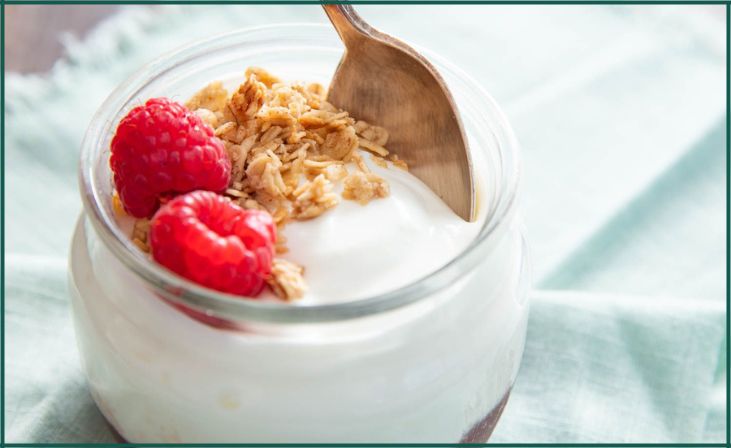
Yogurt is a dairy product made from the fermentation of milk by friendly bacteria, primarily Lactobacillus bulgaricus and Streptococcus thermophilus. These bacteria convert lactose (milk sugar) into lactic acid, which gives yogurt its tangy flavor and helps preserve it. Additionally, many yogurts contain added probiotic strains like Lactobacillus acidophilus and Bifidobacterium bifidum, which can further support gut health by replenishing beneficial bacteria in the digestive system. Regular consumption of yogurt has been associated with improved digestion, enhanced immune function, and a reduced risk of certain gastrointestinal disorders.
Also, Read – Best Healthy Dinner Recipes For Weight Loss
Sauerkraut:
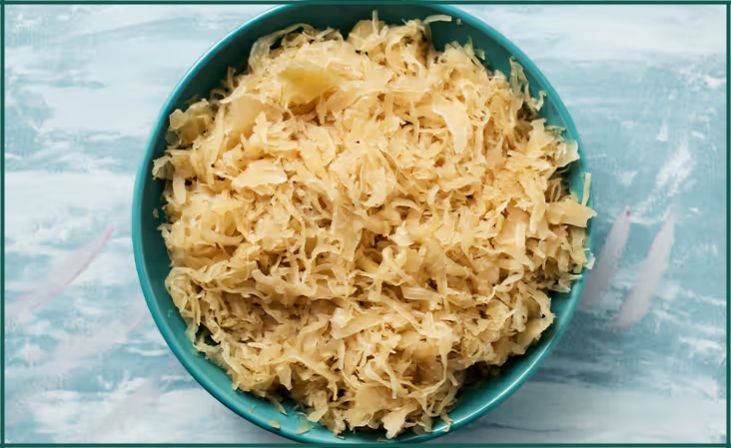
Sauerkraut is a traditional fermented food made from finely shredded cabbage that has been fermented by lactic acid bacteria. During fermentation, the naturally present sugars in the cabbage are broken down by beneficial bacteria, creating lactic acid, which acts as a natural preservative and gives sauerkraut its distinctive sour flavor. Sauerkraut is rich in probiotics, vitamins C and K, fiber, and various antioxidants. Consuming sauerkraut may help improve digestion, support immune function, and promote overall gut health by replenishing the gut microbiota with beneficial bacteria.
Kimchi:

Kimchi is a staple in Korean cuisine, consisting of fermented vegetables, most commonly Napa cabbage and Korean radishes, seasoned with spices like garlic, ginger, and chili pepper. The fermentation process is typically achieved through lactic acid bacteria, which convert sugars in the vegetables into lactic acid, creating a tangy and flavorful dish. Kimchi is a rich source of probiotics, vitamins A and C, fiber, and antioxidants. Regular consumption of kimchi has been linked to improved digestion, reduced inflammation, enhanced immune function, and a lower risk of digestive disorders.
Kombucha:
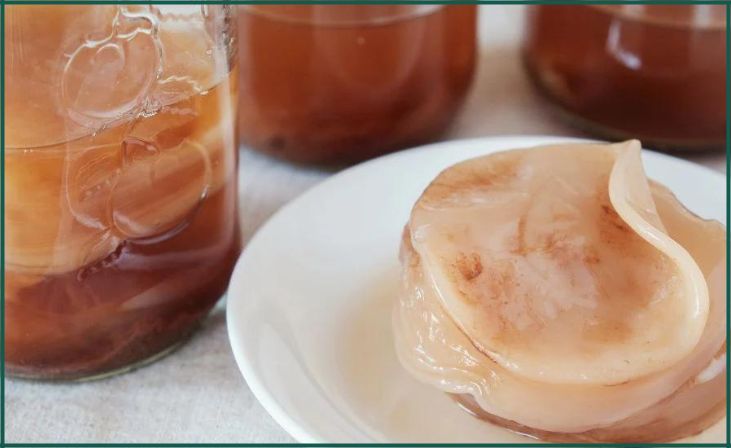
Kombucha is a fermented tea beverage made by fermenting sweetened tea with a symbiotic culture of bacteria and yeast (SCOBY). The fermentation process produces a tangy, slightly effervescent drink that is naturally rich in probiotics, organic acids, antioxidants, and enzymes. Kombucha is believed to support gut health by promoting the growth of beneficial bacteria in the digestive system, aiding in digestion, detoxification, and immune function. However, it’s important to consume kombucha in moderation due to its acidity and potential for adverse effects in some individuals.
Don't just scroll, subscribe!
BuzzTrail's unique web-stories are the cure for boredom you've been waiting for.
Also, Read – Low-Sodium Dinners for High Blood Pressure
Miso:
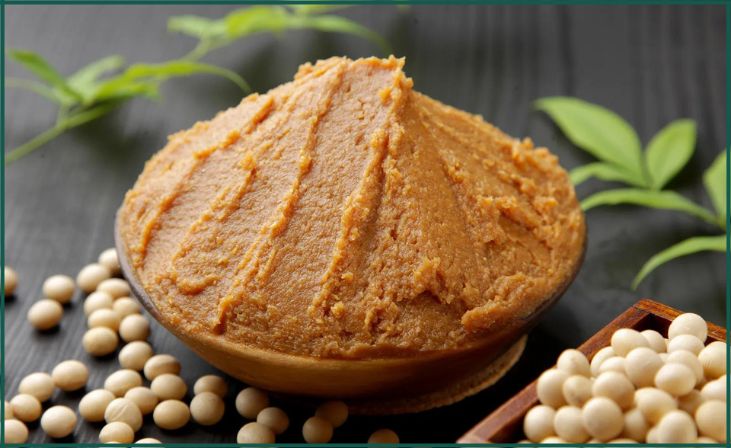
Miso is a traditional Japanese seasoning made by fermenting soybeans with salt and koji (a type of fungus) and often other ingredients like barley or rice. The fermentation process can take anywhere from a few days to several years, resulting in a paste with a rich, savory flavor and a distinctive aroma. Miso is a good source of probiotics, protein, vitamins (especially vitamin K), and minerals like manganese and zinc. Consuming miso may help support gut health, enhance immune function, and provide antioxidant benefits.
Kefir:
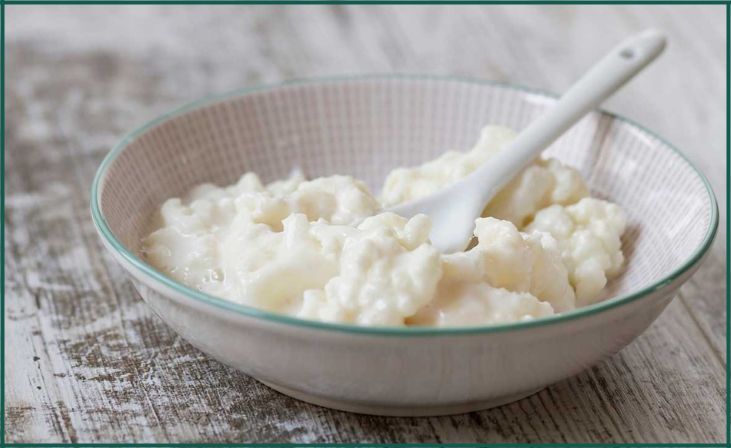
Kefir is a fermented milk drink made by inoculating milk with kefir grains, which are a combination of lactic acid bacteria and yeast cultures. The fermentation process produces a tart, slightly effervescent beverage that is rich in probiotics, vitamins (particularly B vitamins), minerals, and amino acids. Kefir has been shown to promote gut health by replenishing beneficial bacteria in the gut microbiota, improving digestion, enhancing immune function, and reducing inflammation. It’s also a suitable option for individuals who are lactose intolerant, as the lactose in milk is partially broken down during fermentation.
Tempeh:

Tempeh is a traditional Indonesian food made from fermented soybeans that have been bound together into a firm, cake-like texture. The fermentation process is achieved through the growth of a specific fungus called Rhizopus oligosporus, which binds the soybeans together and imparts a nutty flavor to the final product. Tempeh is a rich source of protein, probiotics, vitamins (particularly B vitamins), minerals, and dietary fiber. Consuming tempeh may help support gut health, regulate blood sugar levels, lower cholesterol, and promote heart health. Additionally, tempeh is a versatile ingredient that can be used in a variety of dishes, including stir-fries, salads, sandwiches, and soups.
Conclusion
Conclusion: Incorporating fermented foods into your diet can be a delicious and rewarding journey towards better gut health. From yogurt to kimchi, these probiotic-rich foods offer a multitude of benefits, from improved digestion to enhanced immunity and mental well-being. By embracing the ancient art of fermentation, you’re not only nourishing your gut but also cultivating a deeper connection to your food and its transformative potential. So, whether you’re savoring a spoonful of sauerkraut or sipping on kombucha, remember that each bite and sip is a step towards a happier, healthier you. Cheers to a vibrant gut and a flourishing life!
FAQs
How do fermented foods benefit gut health?
How do fermented foods benefit gut health?
Fermented foods are rich in probiotics, which are beneficial bacteria that support digestive health by promoting a balanced gut microbiome. They can improve digestion, enhance nutrient absorption, boost immune function, and even contribute to mental well-being.
What are some examples of fermented foods?
What are some examples of fermented foods?
Common examples of fermented foods include yogurt, kefir, kombucha, sauerkraut, kimchi, miso, tempeh, and pickles, among others. Each of these foods offers unique probiotic strains and health benefits.

